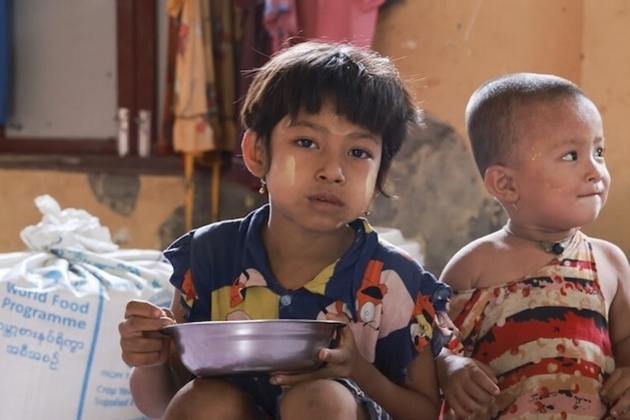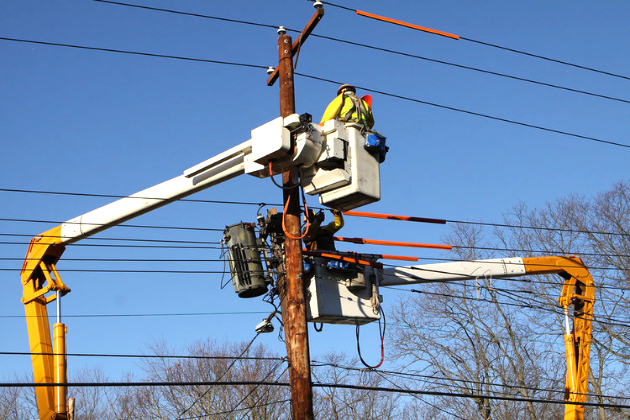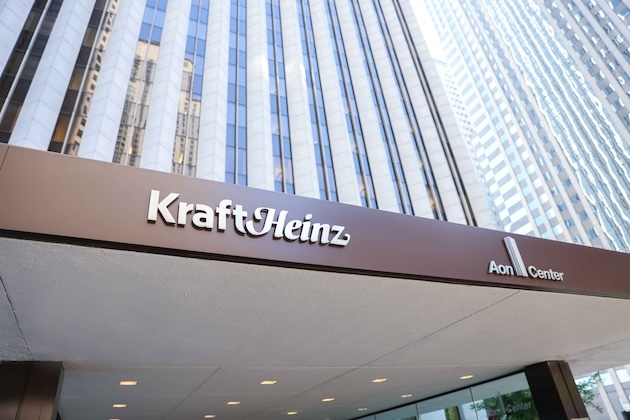Myanmar's civilian population reeling under end to USAID
Chengshi Shiua | Jennifer Hoc | Myo Nyein Aungd | Wei-Ti Chen
18 May 2025, 15:29 GMT+10

- Myanmar faces an especially dire crisis.
- The ongoing civil war had already decimated health-care infrastructure when a magnitude 7·7 earthquake struck on March 28, 2025.
- With humanitarian aid—including USAID support—rapidly vanishing, health-care providers struggle to distribute the scarce medical supplies to those in need.
For decades, the US Agency for International Development (USAID) has been vital in combating HIV across the Asia–Pacific region, where nearly 7 million people live with the virus amid persistent stigma. In countries such as India, Indonesia, Myanmar, Nepal, Papua New Guinea, the Philippines, and Vietnam, USAID's support has expanded access to HIV testing, immediate antiretroviral treatment (ART), and pre-exposure prophylaxis.1
Beyond treatment, USAID has strengthened psychosocial services, legal aid, and capacity-building, ensuring care reaches marginalised communities. However, the abrupt termination of USAID funding has severely disrupted these services, scaling back or halting ART provision, testing, prevention of vertical transmission, and viral load monitoring.2
Mental health support, peer initiatives, and outreach have also suffered, especially in fragile health systems. Community partners report rising health-care discrimination, gender-based violence, economic hardship, and psychological distress. In response, local organisations have adopted emergency measures—shifting to remote work, cancelling leases, and launching small businesses—but these are unsustainable.
Myanmar faces an especially dire crisis. The ongoing civil war had already decimated health-care infrastructure when a magnitude 7·7 earthquake struck on March 28, 2025, destroying clinics, laboratories, and supply chains.3
With humanitarian aid—including USAID support—rapidly vanishing, health-care providers struggle to distribute the scarce medical supplies to those in need. Beyond health care, basic survival is at risk. The World Food Programme (WFP) reports that more than a third of Myanmar's population of 54·1 million face hunger, including 3·5 million people displaced by war.3Due to funding shortages, the WFP will cut food aid for more than 1 million people starting in April, 2025.4
Meanwhile, infrastructure—including roads, bridges, electricity, and internet access—remains largely inaccessible. Public health conditions are worsened by the smell of decomposing bodies in the 38–40°C heat. International aid efforts have stalled, as Myanmar's military junta restricts assistance to some countries and corruption obstructs relief.5
Without immediate global intervention, Myanmar's health-care system faces collapse, with catastrophic consequences for maternal health, disease prevention, and survival, especially for people living with HIV and chronic illnesses. We call on international governments, global donors, and multilateral institutions to act now. Emergency reinvestment is crucial to uphold human rights, strengthen community-led responses, and restore health-care services. Integrating HIV care into broader disaster preparedness and health system strengthening is essential in this time of compounding crises. Southeast Asia stands at a crossroads; without decisive intervention, decades of progress risk being undone. The time to reinvest strategically, urgently, and equitably, is now.
Competing Interests
We appreciate our community liaisons in southeast Asia and health-care providers in Myanmar who relayed to us the current conditions in Myanmar. CS reports grants from the Ministry of Education in Taiwan (grant number 112L900305) and the National Science and Technology Council in Taiwan (grant number 113-2410-H-002-084-MY2). All other authors declare no competing interests.
Editorial note: The Lancet Group takes a neutral position with respect to territorial claims in institutional affiliations.
Photo credit: Su Myan Yadanar | WFP Source: The Lancet
References
 Share
Share
 Tweet
Tweet
 Share
Share
 Flip
Flip
 Email
Email
Watch latest videos
Subscribe and Follow
Get a daily dose of Africa Leader news through our daily email, its complimentary and keeps you fully up to date with world and business news as well.
News RELEASES
Publish news of your business, community or sports group, personnel appointments, major event and more by submitting a news release to Africa Leader.
More InformationInternational
SectionSummer could strain power supply in US, Canada, grid operator warns
WASHINGTON, D.C.: Parts of the U.S. and Canada may not have enough electricity this summer if hot weather causes more people to use...
Trump teaser on new F-55 warplane and upgraded F-22 Super
DOHA, Qatar: President Donald Trump has floated the idea of a new twin-engine warplane, potentially called the F-55, along with a significant...
Bipartisan Group of U.S. Senators Urges Trump Administration to Press for End to Gaza Blockade
WASHINGTON, DC - A coalition of 29 U.S. senators, spanning both parties, introduced a resolution on Thursday calling on the Trump administration...
Myanmar's civilian population reeling under end to USAID
For decades, the US Agency for International Development (USAID) has been vital in combating HIV across the Asia–Pacific region, where...
Citadel CEO to loan rare US documents for public exhibit
MIAMI, Florida: Ken Griffin, the CEO of Citadel and a billionaire investor announced this week he would loan his rare first-edition...
Israel steps up attacks on Gazans
GAZA - Israel Air Force pilots have heavily bombarded Gaza this week, killing hundreds and severely wounding hundreds more. The...
Business
SectionSummer could strain power supply in US, Canada, grid operator warns
WASHINGTON, D.C.: Parts of the U.S. and Canada may not have enough electricity this summer if hot weather causes more people to use...
Amid retail slowdown, Dick’s Sporting to acquire Foot Locker
CORAOPOLIS, Pennsylvania: Dick's Sporting Goods is set to acquire Foot Locker in a US$2.4 billion deal, marking the second major footwear...
Walmart warns shoppers of price hikes amid rising tariffs
BENTONVILLE, Arkansas: Walmart shoppers are bracing for price hikes as the world's largest retailer prepares to pass on the impact...
Tyson CEO says cattle supply recovery underway
CHICAGO, Illinois: U.S. cattle farmers have either started rebuilding their herds or are close to it, according to Tyson Foods CEO...
Tariff threat pushed US smartphone shipments up by 30% in March
WASHINGTON, D.C.: Smartphone shipments to the United States jumped 30 percent in March as manufacturers including Apple, Samsung, and...
Kraft Heinz to invest $3 billion in US plants despite gloomy outlook
CHICAGO, Illinois: Kraft Heinz is committing US$3 billion to revamp its U.S. manufacturing plants, marking its largest investment in...











